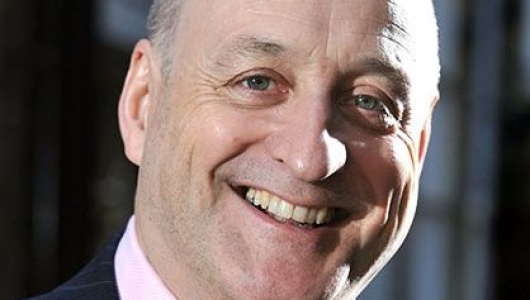
When Vanguard announced it was bringing down the shutters on its UK advice service, the news sent shock waves through the financial advice community.
Many were surprised because Vanguard had successfully implemented a similar mass-market proposition in the US and carved a name for itself as champion of low-cost advice.
The investment giant had hoped to replicate the success in the UK but it failed. In a statement on 1 March it explained the reasons for the closure.
“We launched the service for clients of our existing platform with specialised retirement needs. However, after careful consideration we have concluded that our clients are looking for other, more adaptable forms of financial planning from Vanguard. We have therefore taken the difficult decision to close the retirement planning service.”
It’s very hard, as everybody knows, to make hybrid advice work
Vanguard Personal Financial Planning will cease operations on 31 May. Clients will have the opportunity to transfer to another retirement adviser or convert their account to a non-advised one with Vanguard.
It is a sombre end to a proposition that showed much promise. Until very recently Vanguard had been seen as the poster child for hybrid advice, which would bring a compelling offering to the mass market. Its failure is a huge setback for hybrid advice in the UK.
What went wrong for Vanguard? Why couldn’t its proposition be made to work? And what is the future for hybrid advice in this country? These are some of the must-answer questions Money Marketing wanted to explore.
Attempt to disrupt
In 2021, Vanguard unveiled its advice service for UK retirement savers. It would provide investors preparing for retirement with a “comprehensive financial plan” tailored to their financial situation.
It was aimed at clients with more than £50,000 of assets invested on the Vanguard platform.
Vanguard in the UK is better known for its value-for-money investment propositions than for financial advice
As part of the proposition, Vanguard would recommend an investment portfolio of its diversified equity and fixed income funds as well as manage the portfolio for the investor. It would rebalance as appropriate, and reduce the level of risk on the approach to retirement.
The service had an all-in charge of 0.79%, comprising an advice fee (0.5%) that included VAT where applicable, ongoing fund charges (0.12%), transaction costs (0.02%) and a platform fee (0.15%) capped at a maximum of £375 a year. It also offered tiered support-service levels, with support increasing as investors’ portfolios grew and their financial needs evolved.
At the time of the launch, Vanguard head of Europe Sean Hagerty touted the service’s credentials.
“Vanguard Personal Financial Planning gives value to investors by providing high-quality, low-cost, retirement saving advice, through a service that investors can access at their convenience.
Pretty much all advisers can benefit from getting better capabilities out of hybrid advice
“For some investors, the cost of advice is a barrier. The data indicates people can pay more than 1.5% for advice, platform and fund management charges. It’s not uncommon to see fees north of 2%.
“With people living longer and working longer, these costs have the potential to make a considerable dent in their hard-earned retirement savings.”
Vanguard’s low-cost advice launch forced advisers to take notice. Many felt threatened and saw it as seriously disruptive to their business model. After all, the status quo that had existed for years was one where advisers had dominated the sector and it had been beyond the means of most people with modest assets.
According to Platforum, advisers cater only to the privileged few, around 6% of UK adults. In this context, the Vanguard low-cost service was attractive to people looking to consolidate their assets and retirement pots. It was less than half the cost of the traditional adviser model, which charged 2% or more for a package of full advice.
A commentator at the time of the launch realised the significance of the move and said it had put “the cat among the pigeons”.
The industry should see this as a learning experience from which to benefit
Vanguard’s sights were set on the underserved 94% of the market, mostly people with simple financial needs. The restricted advice service was only for those saving for retirement. It shunned the more complex aspects of advice: estate planning, and advising couples and families. Those areas are the financial advice heartland and Vanguard did not want to bite off more than it could chew.
But it is a huge task to bring simplified, low-cost advice to the mass market and make it profitable. Many others have tried and failed. After just two years of attempting to close the advice gap, Vanguard threw in the towel.
Reasons for failure
Notwithstanding the disruption from a big-name brand, the writing was on the wall for Vanguard’s offering from its early days. Industry experts can supply a plethora of reasons.
First Actuarial business development director and pensions consultant Henry Tapper outlines two of them.
“First, I suspect it didn’t get a great deal of take-up. Second, the take-up it did get was not up to what Vanguard wanted to get.”
We’ve seen significant economic turbulence and uncertainty since Vanguard launched the service
Tapper adds that Vanguard underestimated the magnitude of the challenge of providing retirement advice to people who wanted it free of charge.
“I think with Vanguard they had probably worked out they are not in the financial planning game, but they are in the investment advice game if they can make it pay. But it’s very hard, as everybody knows, to make hybrid advice work.
“We struggle daily at AgeWage [Tapper’s pensions advice service], trying to do the same thing.”
He says Vanguard faced additional obstacles in getting people to take its advice service seriously, and to be willing to pay for it. Because people “basically expect the stuff for free”.
Chet Velani, managing director of EV, a provider of integrated financial adviser and guidance technology solutions, says Vanguard had a problem with its brand reputation in the UK.
It was pretty arrogant of Vanguard to say it could just walk into the market and get it right
“On paper, the service looks really attractive for consumers who aren’t currently served by advisers, especially as Vanguard is a global brand with experience in delivering a similar, successful proposition in the US,” says Velani.
“However, in the UK Vanguard is less of a consumer brand and better known for its value-for-money investment propositions rather than as a place to go for financial advice.”
He also believes the current economic environment and increasing regulatory changes may have contributed to Vanguard ditching its advice service.
“The Consumer Duty requires firms to ensure solutions fit the needs of their target market. This may have posed a problem [for Vanguard] as the service seems to have appealed to younger investors, who are more likely to need advice in other priority areas, such as protection, employer pension savings and general money management, as opposed to focused retirement advice.
The most employable people for the next five to 10 years are going to be those who understand how to get the best out of technology
“We’ve also seen significant economic turbulence and uncertainty since Vanguard launched the service in 2021, with a global pandemic, market volatility, and inflation and interest rates at their highest levels for 15 years.
“Against this backdrop, if the service wasn’t making money straight away, which would have been difficult without immediate scale, it could have been difficult to justify continued spending versus other strategic investments.”
Financial Technology Research Centre director Ian McKenna says another of Vanguard’s shortcomings was its narrow focus on retirement advice while eschewing other propositions such as protection and inheritance tax.
“I think what it demonstrates is, if you’re going to put together a low-cost advice service like this, you’ve still got to be able to provide quite a comprehensive form of analysis,” he observes.
McKenna says Vanguard should have borrowed a leaf from M&G Wealth, which so far has managed a successful hybrid advice business. The M&G model is designed to support a very clear segment of its client base, he adds.
The advice gap is not being closed by the likes of Vanguard because people aren’t going there for advice
“It was very much being built to support those customers who were coming up to retirement. Their assets typically were lower than those a financial adviser would normally support, and M&G has built a service to support those customers who don’t have access to traditional advice, and to do it in a low-cost way.”
Schadenfreude
The threat advisers saw in the Vanguard hybrid advice model explains their reaction when it failed.
Many of its detractors in the independent financial adviser community felt vindicated and had an attitude of, ‘I told you so.’
Others, to their credit, have expressed the view that advice is costly due to the tough regulatory regime that forms part of the process, and that most people will prefer a human over automation when it comes to managing their money.
We see the delivery of hybrid and digital advice solutions, working alongside traditional advice models, as a crucial battleground of the future
Tapper says Vanguard did not do itself any favours by trying to undercut advisers.
“It was pretty arrogant of Vanguard to say it could just walk into the market and get it right. Obviously, Hargreaves Lansdown has got, to a certain degree, an advisory position it has stuck at for 20 years. Vanguard has been at it for two years.
“It’s hardly surprising that the IFAs are laughing.”
However, McKenna warns IFAs about gloating at the setback of a competitor.
“The industry should see this as a learning experience so they can benefit from it. There are some people in the community who don’t want anything to change. They quite like the world as it is currently. But you and I know the world doesn’t stand still. And the world is going to evolve.
“If they are hoping that [Vanguard’s failure] is going to see off the level of directional change, they are going to be out of luck.
Where clients want financial advice, it makes sense to try to make that advice as efficient as possible to deliver
“It’s just a milestone in the same way we have seen so many so-called robo advisers that — and I always caveat here — have never used any robot and don’t give any advice.
“They are just an onboarding process for model portfolios and overwhelmingly they haven’t worked.”
End of the proposition?
The Vanguard failure has raised several questions about the future of hybrid advice in the UK.
A week after Vanguard announced it was closing its advice service, Quilter also stated it was dropping the launch of a standalone hybrid advice offering.
Hybrid or digital solutions will continue to provide a fantastic opportunity to meet the needs of both consumers and financial institutions
Quilter chief executive Steven Levin told Money Marketing: “We are working on our entire adviser technology stacks for our own advisers, and we see hybrid as being a part of that. But we’ve chosen not to do hybrid as a standalone.
“I think pretty much all advisers can get benefits from using technology better and getting better capabilities out of hybrid advice, which to us means more efficient advice processes.
“I want the benefit of that for all our advisers. And that’s what we’re looking to do.”
While some in the industry regard the recent setbacks as the nail in the coffin for hybrid advice, others think this is an opportunity to be bold and innovative.
Hargreaves Lansdown financial advice director Richard Caldicott believes it is “absolutely not” the end of the road for the offering.
There are some people in the community who don’t want anything to change. But you and I know the world doesn’t stand still. And the world is going to evolve
Hargreaves, he says, provides a rounded hybrid proposition to its client base.
“Many of our clients don’t want advice; they want guidance. The company offers digital tools and coaching.
“We have clients who don’t want advice but want a bit of help to improve their accounts. Where clients do want financial advice, it makes sense to try to make that advice as efficient as possible to deliver.
“And that is all that hybrid advice is: making the advice process much more efficient.”
Caldicott joined Hargreaves Lansdown from M&G Wealth last October. He had been part of the M&G team that launched a successful hybrid advice proposition.
He says he is a firm believer in using technology to increase access to advice.
“For clients who are unable to access holistic financial planning, being able to access lower-cost advice can really improve their [financial] outcome.
“This should enable more clients to access advice they wouldn’t otherwise get.”
On paper, the service looks really attractive for consumers who aren’t currently served by advisers
Twenty7Tec chief executive James Tucker says the financial services sector should not only extol the virtue of advice but also take actions to deliver it to a wider market.
“Technology providers must take our role in supporting advisers to deliver low-cost advice more seriously, and help transform the industry by delivering technology that removes friction and cost from the advice process — something the existing players in this market have seemingly failed to achieve.
“We see the delivery of hybrid and digital advice solutions, working alongside traditional advice models, as a crucial battleground of the future — both for tech players looking to win market share and for advisers themselves as customer expectations continue to evolve.”
Advice gap
Financial advice remains the preserve of the rich. Advisers have favoured wealthier clients who are able and willing to pay for their services. This has left the majority, with a decent amount of assets, unable to afford advice.
Most financial services institutions are exploring hybrid and digital advice. The industry recognises the opportunity, which bodes well
Most UK adults do not seek regulated financial advice, believing it to be too expensive and just for the wealthy, according to a new study conducted by the Financial Services Compensation Scheme.
The research, published in February, reveals that almost two-thirds (64%) of UK adults with savings, investments or a mortgage have not sought regulated financial advice in the past five years.
More than one in five of those who had obtained free guidance rather than regulated advice said they had done so because they believed the service was ‘too expensive’.
More than half (55%) of those with any kind of financial product thought paying for financial advice was just ‘for the wealthy’.
As industry commentators have stated in numerous forums, advisers are running a profits-based business and will not be offering cheaper services anytime soon.
If people are hoping that [Vanguard’s failure] is going to see off the level of directional change, they are going to be out of luck
And most of the ideas about closing the advice gap have come from outside the IFA community — particularly from the regulator and firms with a tech background or plenty of financial backing that offer an advice proposition.
However, EV’s Velani says recently the IFA sector has taken steps to address some of the barriers to traditional advice.
“There have certainly been some positive changes over recent years,” he says.
“We’re seeing a reduction in charges across the advice proposition, driven by technology adoption and scale; and the launch of a number of purely digital and hybrid advice journeys, which do offer advice at a lower price point.
“Most financial services institutions — across banks, building societies, product providers, platform providers, workplace providers and the larger advice networks — are exploring hybrid and digital advice. The industry recognises the opportunity, which bodes well for the future.”
But others believe the whole advice gap debate is just chasing shadows. Pensions expert Tapper argues that the people who are actually ‘in’ the advice gap are not opening accounts with the likes of Vanguard.
Hargreaves Lansdown has got, to a certain degree, an advisory position it has stuck at for 20 years. Vanguard has been at it for two years
“They are the people who are stuck in workplace pensions or cash Isas and don’t know what to do,” he says. “They are the people who go to the Martin Lewis Money Show, and they come away thinking, ‘This is what I ought to do.’ These are people who aren’t going to pay any large amount for anything.
“So the advice gap is not being closed by the likes of Vanguard because people aren’t going there for advice.”
Tapper adds that Vanguard customers are savvy DIY investors “who are quite capable of getting the answers to all the questions they want by Googling them”.
So what these individuals want is something extra for nothing. And that is the problem.
What’s the future for hybrid advice?
Despite the setback experienced by Vanguard, many firms are mulling the idea of building their own standalone hybrid advice offering to provide personalised wealth services to customers.
This is because firms have recognised the need to have some type of hybrid capability as part of their wealth strategy in order to meet the growing requirements of clients.
“We know that the vast majority of individuals who need a personal recommendation, in particular those approaching retirement, can’t currently access advice,” says Velani.
If you’re going to put together a low-cost advice service like this, you’ve still got to be able to provide quite a comprehensive form of analysis
“In the future, this will intensify further because those approaching retirement will have a larger proportion of defined contribution pensions and less inherited and property wealth.
“At the same time, there’s a desire for advice firms to reduce the cost of advice, focusing on the value-add activity and reducing administrative tasks that can be carried out via technology and algorithms.
“This suggests hybrid or digital solutions will continue to provide a fantastic opportunity to meet the needs of both consumers and financial institutions.”
Appetite for change
Technology continues to develop at a rapid pace, with automation and artificial intelligence (AI) simplifying the advice process by doing the heavy number crunching.
Advisers are slowly warming to the idea that sometimes, to fix it, you need to break it.
“I have never seen a period before where advisers were changing their traditional way of thinking,” says McKenna.
“Real recognition is coming across in the adviser market that, if you want to still be trading in five or 10 years’ time, your firm will need to be very different in the way it operates.
We have concluded that our clients are looking for other, more adaptable forms of financial planning from Vanguard
“I have never been as enthusiastic about the future of the advice market [as I am now] because I am genuinely seeing people with an appetite and hunger for change.
“Historically, so many have said, ‘That won’t really affect us as what we do is different.’
“Now they are seeing AI come along with technology, but so many of them are taking it the right way and asking, ‘What does this enable me to do?.’
“And the most employable people for the next five to 10 years are going to be those who understand how to get the best out of technology.”
This article featured in the April 2023 edition of MM.
If you would like to subscribe to the monthly magazine, please click here.
















As I have said before Financial Advice and low cost are oxymorons. If Vanguard can’t hack it what chance has anyone else got?
Cheap as chips never works well in the Financial Advice Planning arena; if it costs nothing, it’s worth nothing.
The consequence of buying in business, will always be failure and or negative profit.
Low cost advice is a myth, why do you think the quote “if it sounds to good to be true it normally is” is spot on ?
Who goes out to buy the cheapest washing machine, they can find then expects it to last out their years.
Its a throw away, and transactional world, and unfortunately, regulation is pushing us this way, whether intentionally or unintentionally, cull the dinosaurs and make room for the bots with deep pockets ….. plug and play regulation has nothing to do with the consumer and everything to do with political / governmental control.
This industry in one way or another has been bastardised beyond recognition and functionality, to suit.